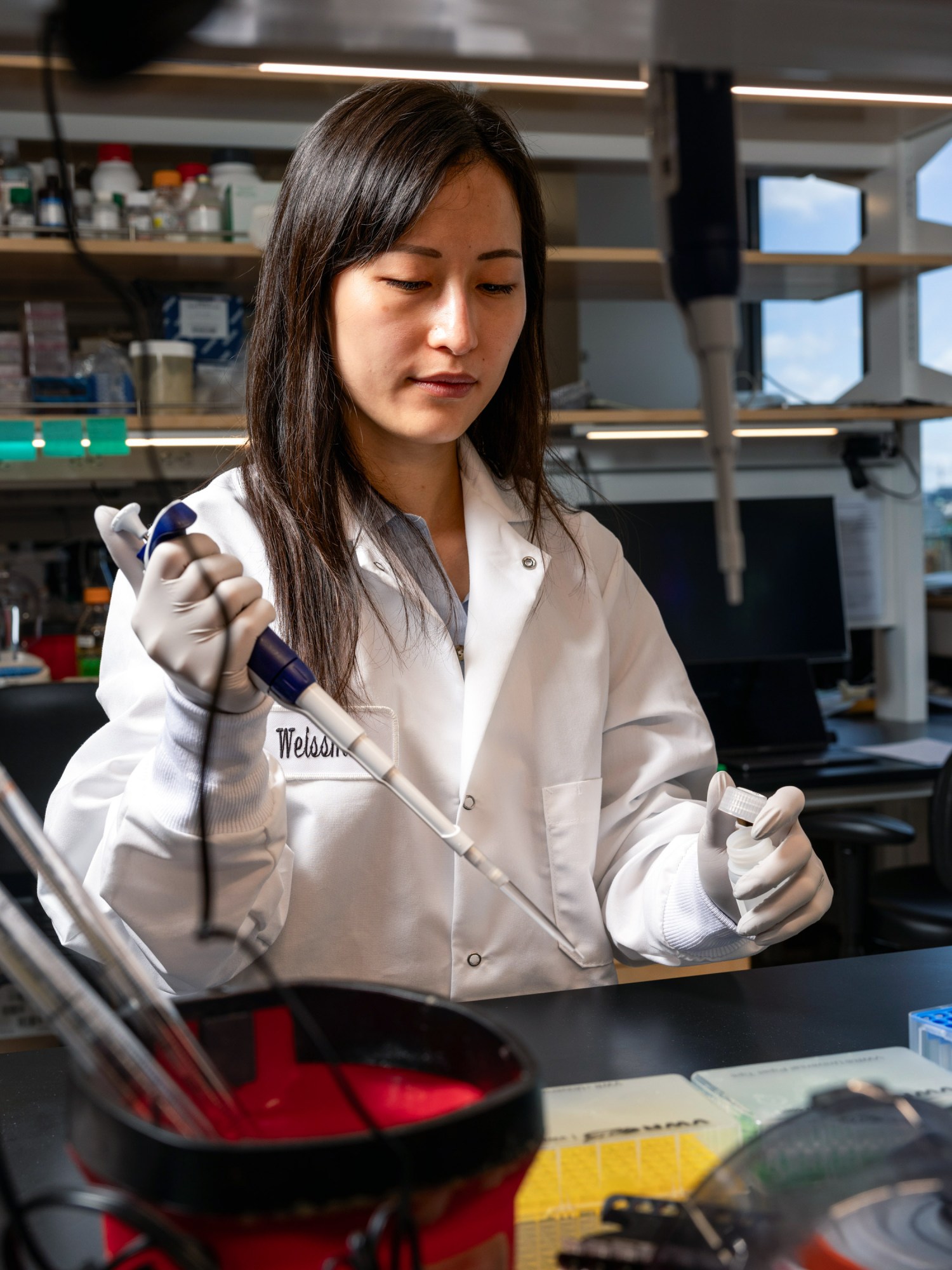
ALEX GAGNE
The result of her survey, published in January, is an “atlas” of how individual transcription factors affect the identity of stem cells. Joung says she has seen neurons, beating heart muscle, and placenta cells appear under her microscope. But the ultimate goal, she says, “is to be able to make any cell type, and in a very controlled way.”
Supplies of specific cells could be useful for testing drugs or new types of therapies. Other scientists studying transcription factors hope to find combinations that will form human eggs in the lab or even provide the key to rejuvenation treatments. “We aren’t just generating lists when we screen. It’s a list with a purpose,” says Joung. “There’s always that end goal.”
Genetic screening is “big” science—Joung’s PhD work relied on 17 collaborators. And it’s expensive, too. Just purchasing all the genes she needed cost $550,000, money Joung was able to raise from Broad’s Stanley Center for Psychiatric Research, among others.
But the physical scale of the work is often microscopic. The genes arrive as ephemera in plastic tubes. Most of the action happens in cell-culture rooms, where trainees in white coats work elbow to elbow in front of special workbenches, covered with plexiglass. Eventually, Joung’s experiment involved over a million cells. Yet all of these cells would, together, be smaller than a single fruit fly.
Joung hasn’t gotten around to answering the question about those astrocytes that piqued her curiosity as an undergrad. And she admits it’s not her top priority anymore. Now, as a postdoc at the Whitehead Institute, also in Cambridge, she’s using her screening approach to dig into fundamental questions about how proteins are made inside cells.
“Julia is a technically brilliant and conceptually bold scientist who is building tools that provide unique and comprehensive views of complex processes,” says Jonathan Weissman, who leads the Whitehead lab in which Joung now works.
Source link

